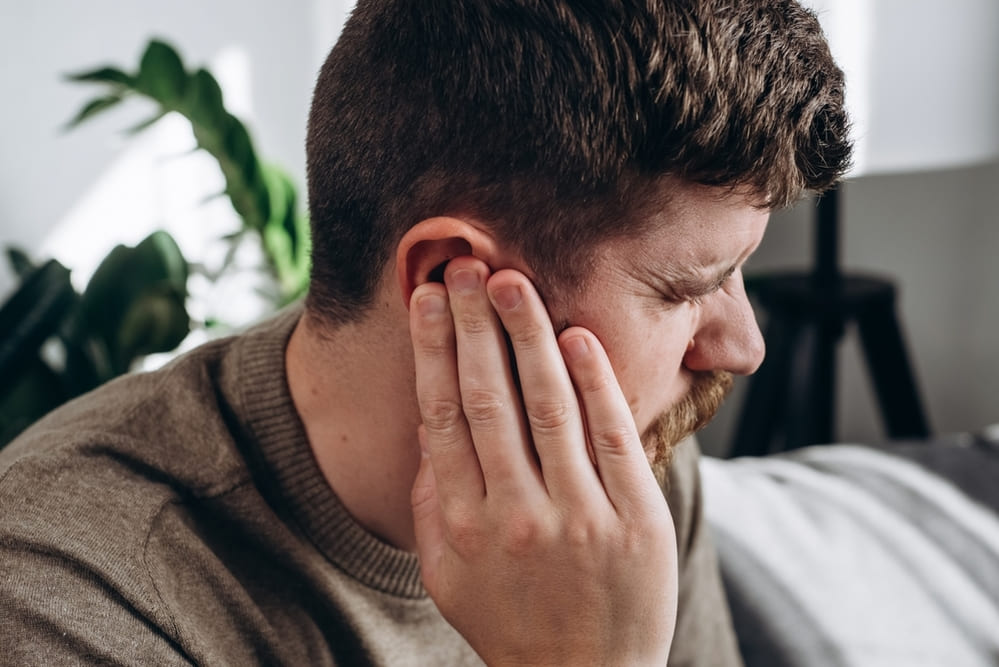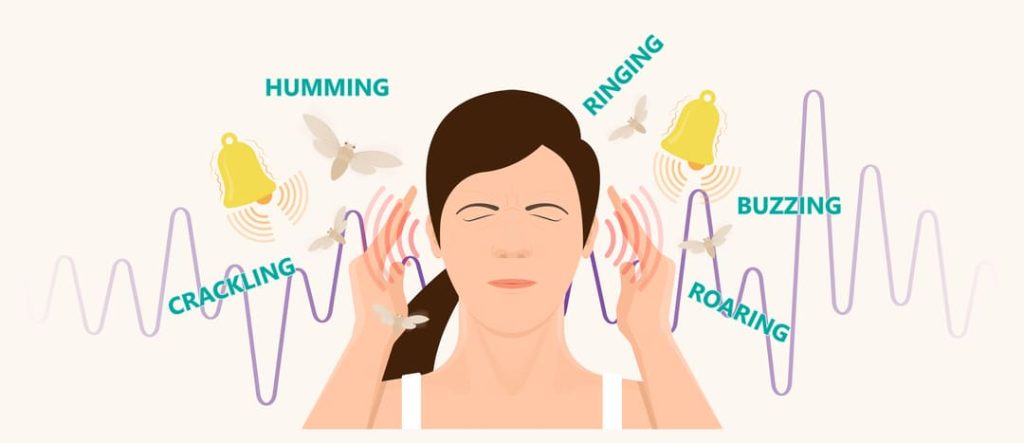Looking for Expert-Level VA Claim Answers?📱Call Us Now! 737-295-2226
This Do’s and Don’ts of Filing a Tinnitus Claim Guide will take you through exactly what you need to know in order to have the best chance at getting your tinnitus VA claim accepted.
We’ll also break down what tinnitus is, the different types of tinnitus, how to file a tinnitus claim, how the VA rates tinnitus, and more.
Even though filing a tinnitus claim is the most common VA claim among military service members, it is also often denied by the VA.
In order to make sure your tinnitus VA claim is accepted, it is vitally important to know the correct “do’s” and “don’ts” when filing with the VA.
Let’s get started.

What is Tinnitus?
Tinnitus is described by the Mayo Clinic as ringing, buzzing, roaring, clicking, hissing and other auditory noises in the ears. It is often wrongly described as hearing loss. However, it is not hearing loss. It is a result of damages in the eardrum.
Tinnitus in Veterans
Tinnitus is especially prevalent in veterans, with nearly 10% of all veterans receiving VA disability compensation for the condition, and many more believed to suffer from it despite not filing a tinnitus VA claim. This is due to frequent stress on the eardrums from a large amount of loud noises veterans are exposed to both in training and in deployment, including gunfire, loud machinery, and other explosive blasts.
Do’s and Don’ts of Filing a Tinnitus Claim
Let’s take a look at what you need to do when filing a VA claim for tinnitus.
To win your tinnitus VA claim you must be able to prove service connection.
How Do You Prove Tinnitus is Service-Connected?
To get service connected for your tinnitus, you must meet the following requirements:
- DO have current diagnosis of tinnitus
- DO have in-service event, injury, illness, or aggravation
- DO have a medical nexus (or link) between the current diagnosis and the in-service event, injury, or illness (can be a Nexus Letter)
PRO TIP: To file any successful, fully developed claim with the VA you need to have the above three pieces of documentation in place.
DO have a medical diagnosis of your condition can be from any doctor of your choosing, but it has to be specific to your claim.
DO provide as much evidence as you can. The VA looks at when this happened, how it affects you, has it worsened over time, and to what extent it is impacting your quality of life.
DO have a medical nexus. This can be a statement from your doctor or a Nexus Letter. A nexus letter is a medical letter generated by an evaluator that links your medical diagnosis to your service. It is crucial to have this link; if you cannot prove the link, you will not be awarded a rating. The best thing to do for this evaluation is to put thought into what you want your examiner to know, specifically what caused it.
Be sure to include exactly how often you notice experiencing your symptoms. Be specific about how serious those symptoms are, and track the timeline of when you first noticed the tinnitus, and whether or not it has remained or if there have been breaks in it (this is how “chronic” your condition is).
These are all things that must be proven by you and your medical doctor. So, it is essential to file a claim for tinnitus as soon as you start experiencing it. With the VA, time is not on your side.
DON’T file a tinnitus VA claim before you have received a medical diagnosis.
DON’T assume that your claim will be accepted with just the basic information provided.
The longer you are out of the service, the harder it is can be to prove the service connection. Also, remember that statements in support of your claim and buddy letters are crucial when submitting your evidence to support your claim as well.
Tinnitus is not easily proven because the vast majority of the cases are subjective. Therefore the VA will be carefully examining the evidence in your claim.

Filing a Tinnitus Claim in 4 Easy Steps
You can file a VA claim for tinnitus using the following four easy steps:
- Gather Documentation: Collect medical records showing current diagnosis, test results, service records, and other evidence, such as Medical Nexus Letter or Independent Medical Opinion (IMO) linking your tinnitus to your military service.
- Complete VA Form 21-526EZ: Fill out this form to apply for tinnitus VA disability compensation. Include details about your exposure, symptoms, and how your tinnitus affects your daily life.
- Submit Your Tinnitus VA Claim: Send the completed form and supporting documents to the VA regional office handling your VA claim. You can submit it online through the VA website, by mail, or in person.
- Await the Decision: The VA will review your tinnitus claim, considering the evidence provided.
The VA will notify you of their decision regarding your eligibility for a tinnitus VA rating, including benefits and compensation.
How the VA Rates Tinnitus
The maximum VA rating for tinnitus is 10%, nothing more and nothing less. Tinnitus is rated according to ECFR Title 38, Part 4, using diagnostic code 6260.
Tinnitus VA Rating UPDATES
See our YouTube Video, Tinnitus VA Rating Changes Coming Soon for Insider information about VA rating changes for tinnitus!
Tinnitus as a Secondary Condition
Tinnitus can be claimed as a primary disability, or it can be secondary to other conditions. Meaning that if it is proven that you have other issues related to tinnitus, such as hearing loss, you may be entitled to a higher combined VA rating. It would need to be determined during your evaluation, as to why you have tinnitus, to know how to file this disability.
See also: Top VA Secondary Conditions to Tinnitus

Types of Tinnitus
There are two different kinds of tinnitus; Subjective and Objective. According to Merckmanuals.com, Subjective Tinnitus is described as a “perception of sound in the absence of an acoustic stimulus and is heard only by the patient. Most tinnitus is subjective”.
Subjective tinnitus is usually traceable to auditory and neurological reactions to hearing loss.
They also went on to explain that “Objective tinnitus is uncommon and results from noise generated by structures near the ear. Sometimes the tinnitus is loud enough to be heard by the examiner”. These noises can be produced by the internal functions of the patient’s body. Objective tinnitus is also very rare, occurring in less than 1% of reported tinnitus cases.
Tinnitus Triggers
Let’s take a look at what some of the causes or triggers of Tinnitus are. These can include loud environments, music, military service, etc. Here are a few examples of military causes; flight line noise, combat zones, head trauma, and training.
In addition to damage from loud noises, the condition can also be caused by infection, blockages, or head and neck injuries.
Finally, even vertigo, depression, PTSD, and everyday stressors have been shown to cause a development of tinnitus. All of these are things to consider when explaining your condition during your appointments and for your medical Nexus letter. It is essential so the doctor can determine there are no other causes of your Tinnitus, other than your military service.
Tinnitus, as explained above, is subjective. This can work for you or against you. Because only you are able to hear these noises, the doctors have to take your word for it. Meaning, you need to have all of the facts in place before your evaluations begin.
With that being said, Tinnitus can be hard to prove and is frequently hard to link to military service.
It’s also important to understand that tinnitus is not usually a permanent condition, despite how irritating or distracting it can be.

Wrapping Up
If you have experienced any symptoms of tinnitus since your time in service, you deserve a tinnitus VA rating. Many who experience this irritating and debilitating condition don’t even bother to file a tinnitus VA claim because they might believe it’s not serious enough for them to worry about. That’s just leaving money on the table! As a veteran, you are entitled to these benefits. You’re not taking benefits from other veterans and there is no reason to avoid receiving what is owed to you.
Receiving a rating can make it easier to get benefits later if you ever begin to develop hearing loss.
For more information on this check out Brian Reese’s Youtube video here.
You DESERVE a HIGHER VA rating.
Take advantage of a VA Claim Discovery Call with an experienced Team Member. Learn what you’ve been missing so you can FINALLY get the disability rating and compensation you’ve earned for your service.
NEED MORE ASSISTANCE?
Most veterans are underrated for their disabilities and, therefore, not getting their due compensation. At VA Claims Insider, we educate you on how to take control of the claims process so you may get the rating and compensation you’re owed by law. If you’ve filed your VA disability claim and have been denied or have received a low rating—or you’re unsure how to get started—reach out to us!
Our process takes the guesswork out of filing a VA disability claim and supports you in building a fully developed claim (FDC)—so you may increase your rating FAST! Take advantage of a FREE VA Claim Discovery Call. Learn what you’ve been missing—so you can FINALLY get the disability rating and compensation YOU DESERVE. We’ve helped over 25,000 veterans increase their VA disability rating—now it’s your turn!
About the Author

About VA Claims Insider
VA Claims Insider is an education-based coaching/consulting company. We’re here for disabled veterans exploring eligibility for increased VA disability benefits and who wish to learn more about that process. We also connect veterans with independent medical professionals in our referral network for medical examinations, disability evaluations, and credible independent medical opinions and nexus statements (medical nexus letters) for a wide range of disability conditions.




